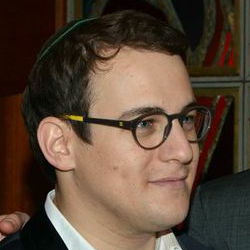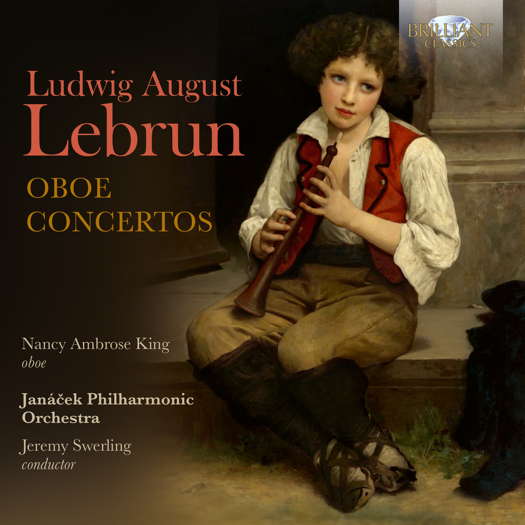- Isaac Levy
- Jeanne Ellison Shaffer
- Ivan Fedorovych Karabyts
- Avi-Service
- Gerd Natschinski
- Arizona Opera
- Pictures from an Exhibition
- J'Nai Bridges
 SPONSORED: Ensemble. Melting Rhapsody - Malcolm Miller enjoys Jack Liebeck and Danny Driver's 'Hebrew Melody' recital, plus a recital by David Aaron Carpenter.
SPONSORED: Ensemble. Melting Rhapsody - Malcolm Miller enjoys Jack Liebeck and Danny Driver's 'Hebrew Melody' recital, plus a recital by David Aaron Carpenter.
All sponsored features >>
 DISCUSSION: John Dante Prevedini leads a discussion about Composers, individuals or collective?, including contributions from David Arditti, Halida Dinova, Robert McCarney and Jane Stanley.
DISCUSSION: John Dante Prevedini leads a discussion about Composers, individuals or collective?, including contributions from David Arditti, Halida Dinova, Robert McCarney and Jane Stanley.

Lebrun Oboe Concertos
97009 (Brilliant Classics, CD)
DDD
REISSUE (1 January 2024)
Playing time: 73'16"
Tracks: 12
Booklet pages: 5
℗ 2003 Cala Records Ltd
© 2024 Brilliant Classics, licensed from Signum Records
Main country of recording: Czech Republic
Country of manufacture: European Union
Reviewer: Gerald Fenech
Review of Lebrun Oboe Concertos published on 11 April 2024
Nancy Ambrose King, oboe
Janáček Philharmonic Orchestra
Jeremy Swerling, conductor
Ludwig August Lebrun (1752-1790):
Oboe Concertos
Concerto in G minor André No 2
1 Allegro
2 Adagio
3 Rondo
Concerto in F Sieber No 7
4 Allegro
5 Adagio
6 Rondo
Concerto in F Sieber No 3
7 Allegro
8 Adagio
9 Rondo
Concerto in D minor André No 1
10 Allegro
11 Grazioso
12 Rondo
Classical-era oboe concertos, full of flourish and elegantly turned melodies in polished and critically praised recordings from 2000-2002. Ludwig August Lebrun (1752-1790) was an oboist by training, and the son of an oboist at the Mannheim court, Alexander Lebrun. Ludwig evidently wrote these concertos, and another ten in the same vein, in order to showcase his own abilities on an instrument which was evolving rapidly in terms of technical innovation (projecting further, with more reliable tone) and thus allowing for greater virtuosity on behalf of both composers and performers. There are four concertos here, and they all adhere to the standard three-movement form and belong to the idiom of the Mannheim school exemplified by the likes of Franz Danzi (1763-1826) (whose daughter Lebrun married) and Cannabich. There are delicate melodies as well as spectacular virtuosity in music filled with imagination, humour and depth, not to mention the occasional unexpected turn of phrase. These are not miniature or insignificant pieces. The opening G minor piece is developed with the kind of pathos we associate with the key in the hands of Mozart, and after two F major concertos, the album concludes with a poignant and stern D minor concerto, punctuated by trumpet and drums, and enclosing a noble Grazioso slow movement where the oboe sings like an abandoned operatic heroine.
Recorded 4 September 2000 and 4-6 January 2002 at Vitkove Dum Kulture, Ostrava, Czech Republic.

